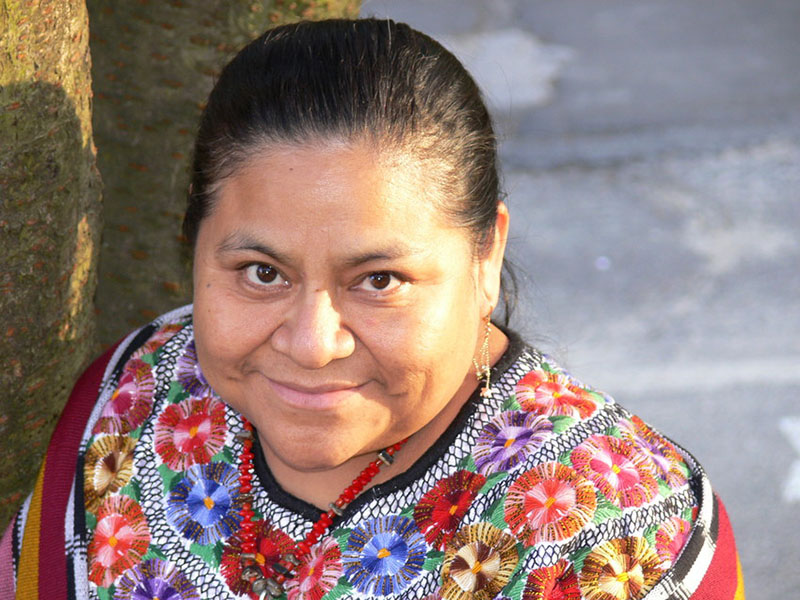FAYETTEVILLE, Ark. — Rigoberta Menchú, who won the Nobel Peace Prize in 1992 and has been a life-long advocate for indigenous peoples in her native Guatemala and around the world, will visit the University of Arkansas Oct. 12 and 13. She will take part in three public events during her time on campus.
She is first scheduled to join the Trail of Tears Commemorative Walk at 11 a.m. Monday, Oct. 12. The walk will begin at the Arkansas Union Connections Lounge and will end at the Trail of Tears Park at the corner of Stadium Drive and Martin Luther King Jr. Boulevard.
At 9 a.m. Tuesday, Oct. 13, she will participate in “A Conversation with Dr. Rigoberta Menchú” in the Helen Robson Walton Reading Room in Mullins Library on campus. This free event is open to the public, but seating is limited and preference will be given to students and members of the Latino community. The conversation will be conducted in Spanish and through an interpreter.
The Winthrop Rockefeller Distinguished Lecture will be held at 7 p.m. Tuesday, Oct. 13, in the Arkansas Union Verizon Ballroom. Menchú will deliver the lecture in Spanish, using an interpreter. The event is free and open to the public. As part of standard security procedures people are discouraged from bringing backpacks or large bags into the Verizon Ballroom, and these will be subject to search.
Menchú will have books to sell and sign following the lecture. All sales will be cash only. Proceeds from the sale go to support the charitable work done by her foundation.
Menchú is a member of the Mayan K'iche' ethnic group in Guatemala and has dedicated her life to publicizing the struggle of Guatemala’s indigenous peoples during and after her country’s Civil War. Her testimonial biography I, Rigoberta Menchú (1983), established her international reputation. She became the first indigenous person to receive the Nobel Peace Prize, and continues to work for peace, justice for her people, and international human rights initiatives.
Her visit is sponsored by the Winthrop Rockefeller Distinguished Lectures Series; Latin American and Latino Studies Program; Hispanic Heritage Month Committee; Student Distinguished Lectures Committee; the Office of the Dean, J. William Fulbright College of Arts and Sciences; PeaceJam; Honors College; Latino Alumni Society; University of Arkansas Libraries; Department of English; Department of History; Office of Latino Academic Advancement and Community Relations; Department of Political Science; International Studies Program; Center for Multicultural and Diversity Education; and the Native American Studies Committee.
About the University of Arkansas: The University of Arkansas provides an internationally competitive education for undergraduate and graduate students in more than 200 academic programs. The university contributes new knowledge, economic development, basic and applied research, and creative activity while also providing service to academic and professional disciplines. The Carnegie Foundation classifies the University of Arkansas among only 2 percent of universities in America that have the highest level of research activity. U.S. News & World Report ranks the University of Arkansas among its top American public research universities. Founded in 1871, the University of Arkansas comprises 10 colleges and schools and maintains a low student-to-faculty ratio that promotes personal attention and close mentoring.
Topics
Contacts
Kirstin Erickson, director, Latin American and Latino Studies
J. William Fulbright College of Arts and Sciences
479-575-5600,
Steve Voorhies, manager, media relations
University Relations
479-575-3583,
